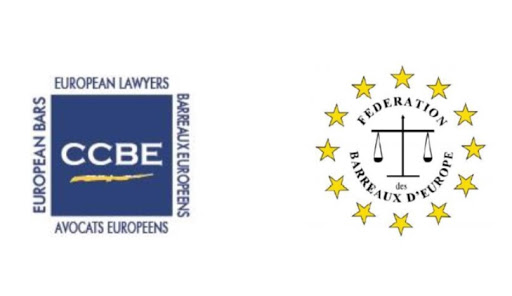On this day, 10th December 2020 – celebrated as the International Day for Human Rights – the CCBE takes the opportunity to reiterate its strong condemnation of the ongoing crackdown against lawyers in Turkey.
Recently, the European legal world and beyond mourned the loss of our Turkish colleague, Ebru Timtik, who died in custody on hunger strike. Ebru was a passionate lawyer, unfairly and unjustifiably detained, as well as many other detained lawyers, under inadequate detention conditions, including isolation and censorship of books and newspapers, putting herself on hunger strike – at the risk of her life – to obtain a fair trial.
In another recent example, around 55 lawyers and trainee-lawyers were arrested in Ankara on 11th September 2020 on charges of being members of a terrorist organisation in connection to their representation of clients, or assistance with such representation, who are suspected of alleged affiliation with the Gülen movement.
The arrested lawyers were asked questions in relation to their professional activities, some of which allegedly violated the principle of lawyer-client confidentiality Following the failed coup d’état of 15th July 2016, the Turkish government declared a state of emergency and adopted a series of decree-laws that seriously undermined human rights and the rule of law across the country.
Although the state of emergency was lifted in July 2018, the persecution of lawyers continues, including mass arrests, unfair trials and harsh sentences. According to the latest information available, since July 2016:
• More than 1500 lawyers have been prosecuted;
• More than 600 lawyers have been arrested;
• More than 400 lawyers have been sentenced to long prison terms – the average prison term being 7 years.
The use of “mass trials” against lawyers or lawyers’ associations is frequent and fundamental rights and procedural safeguards are often not respected. Lawyers are being targeted solely because they are carrying out their professional activities, on the basis of alleged accusations of supporting terrorist organisations.
In a 2019 country visit report1 , Commissioner for Human Rights of the Council of Europe stressed that “Turkey must urgently roll back restrictions to procedural defence rights adopted during the state of emergency, including severe limitations to client-lawyer privilege, and address the increasingly apparent attitude within the Turkish judiciary of considering lawyers guilty by association with their clients, which led to a significant increase in judicial actions targeting lawyers, including by admitting as evidence acts that form part and parcel of their profession.” 1
In addition to this, worrying changes in the Bars’ structure in Turkey and intervention of political authorities in this structure have been taking place. This has notably been the case with the adoption of a new bill, now law no. 7249, which entered into force through its promulgation in the Official Gazette on 15 July 2020, modifying the electoral system of the chambers of the bar and further restricting the independence of bar associations and the legal profession in Turkey. This Law was adopted hastily despite the intensive objections raised in the peaceful demonstrations held by all of the heads of the Bar Associations of the country and some of whom were later prosecuted for doing so.
The CCBE once again stresses that the independence of the legal profession is an essential component in upholding the rule of law in a free society. Lawyers play a fundamental role in ensuring the protection of human rights and fundamental freedoms.
The right to legal representation is guaranteed in Article 14(3)(b) of the International Covenant on Civil and Political Rights (ICCPR), to which Turkey is a party.
The Council of Europe Recommendation on the freedom of exercise of the profession of lawyer N°R (2000) 21 from 25th October 2000 highlights that “all necessary measures should be taken to respect, protect, and promote the freedom of exercise of the profession of lawyers without discrimination and without improper interference from the authorities or the public, in particular in the light of the relevant provisions of the European Convention on Human Rights”.
Furthermore, in accordance with the United Nations Basic Principles on the Role of Lawyers, governments must ensure that lawyers are able to perform all their professional functions without intimidation, hindrance, harassment, or improper interference (Principle 16). In addition, lawyers must not be identified with their clients or their clients’ causes as a result of discharging their functions (Principle 18).
The CCBE urges the Turkish authorities to uphold the rule of law by bringing an end to the persecution of lawyers and by refraining from taking any measure which would have the effect of hindering the independence, integrity and freedom of expression of the legal profession in Turkey. All lawyers who have been unduly detained for carrying out their professional activities should be immediately released.










